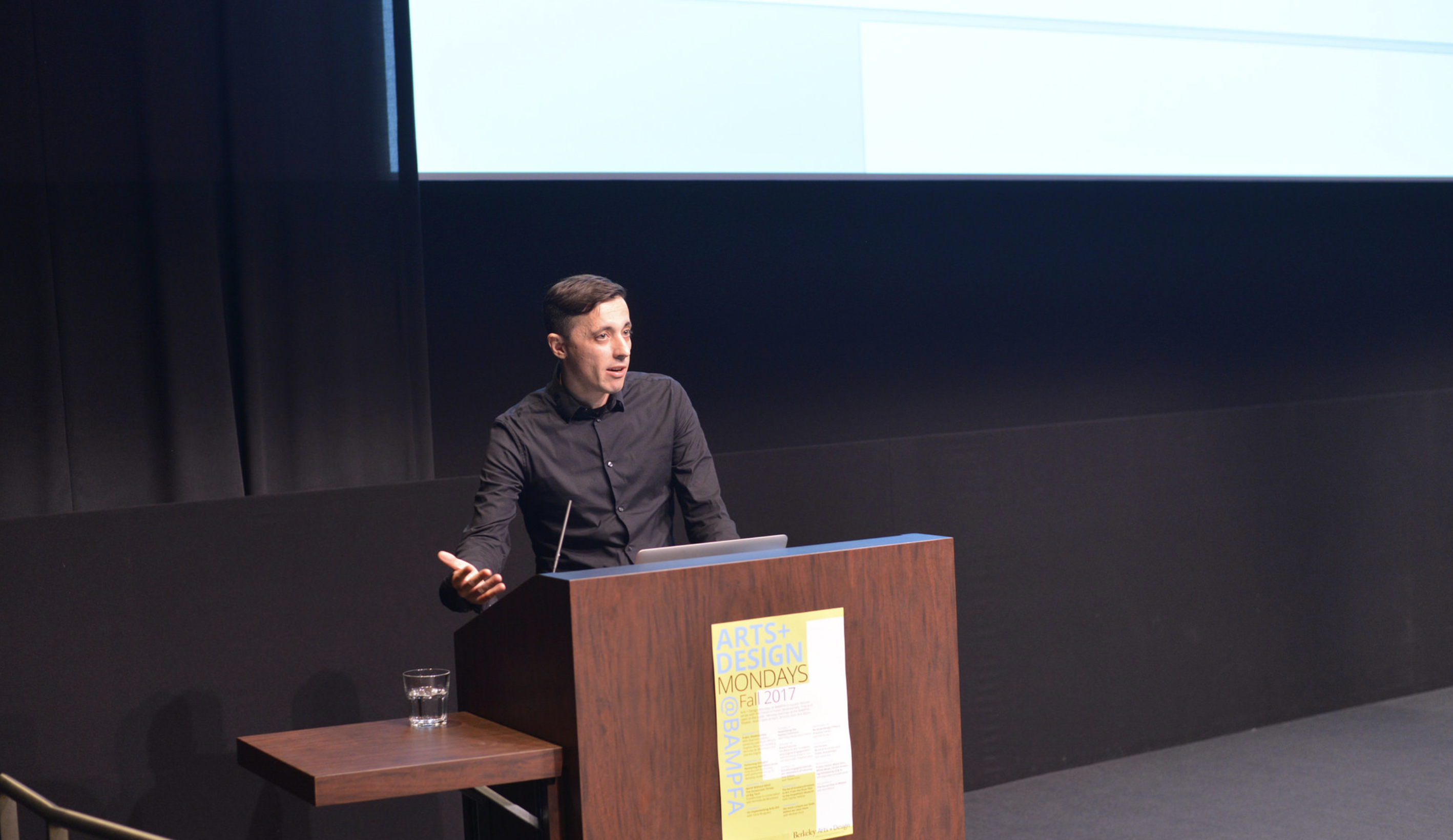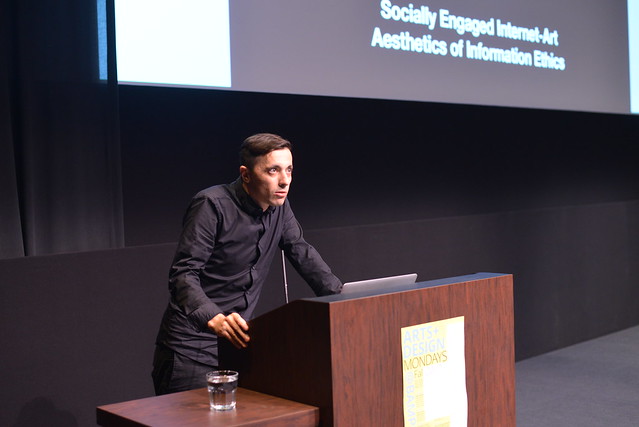ATC Revisited: Paolo Cirio, "Socially Engaged Internet-Art"

Recap by KC Forcier, the 2017-2018 Graduate Liaison for the Art, Technology, and Culture Colloquium
Art, Technology, and Culture Colloquium, October 23, 2017
Socially Engaged Internet-Art: Aesthetics of Information Ethics
Professor Gail De Kosnik introduced Paolo Cirio’s work as many things: digital activism, piracy, conceptual art, street art. Perhaps the most apt was “cease and desist art” - for all the ire he has elicited from corporations for his projects which make visible their more controversial practices and breaches of public faith. Cirio outlined these projects, as well as their fallout, in a talk at the BAMPFA last monday on the aesthetics of information ethics, "the branch of ethics that focuses on the relationship between the creation, organization, and dissemination of information."
Cirio’s work makes visible processes, relations, and mechanics of institutions that control information online by appropriating and recontextualizing the information they control. As an example, with Street Ghosts Cirio took images of people captured by Google Street View and created life-size posters, which he then posted at the location where they were originally taken. Cirio considered these figures to be ghosts, "casualties of an information war," in which individual privacy is the victim. Another work that makes visible our vulnerability online is Face to Facebook, whereby Cirio and his collaborators appropriated hundreds of thousands of personal photos and information from the Facebook profiles of unwitting individuals and posted this information on a public dating website.
With Loophole for All, Cirio hacked the registry of companies incorporated in the Cayman Islands and stole their identities in order to expose the ubiquity of offshore banking and the arcane flows of money globally. Amazon Noir was a project whereby Cirio devised an algorithm that copied entire books on Amazon, which he then made into PDFs and shared for free online and in print. Though these controversial pieces have raised anger from the public as well as from the corporations hacked, they raise important questions about the ways in which access to knowledge, free speech, privacy and transparency intersect and compete online.

